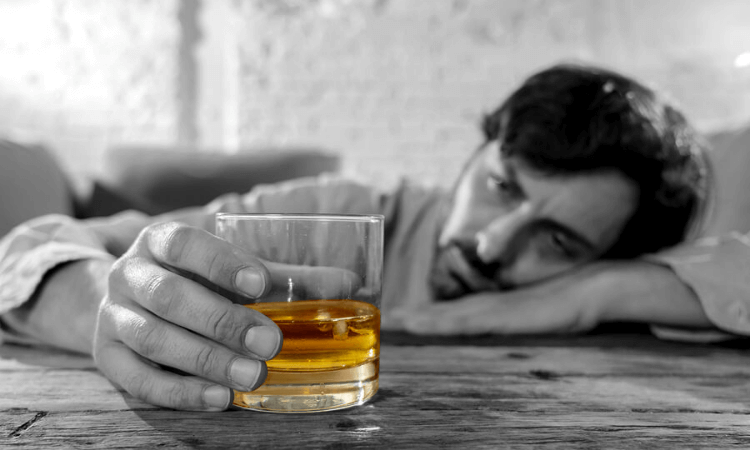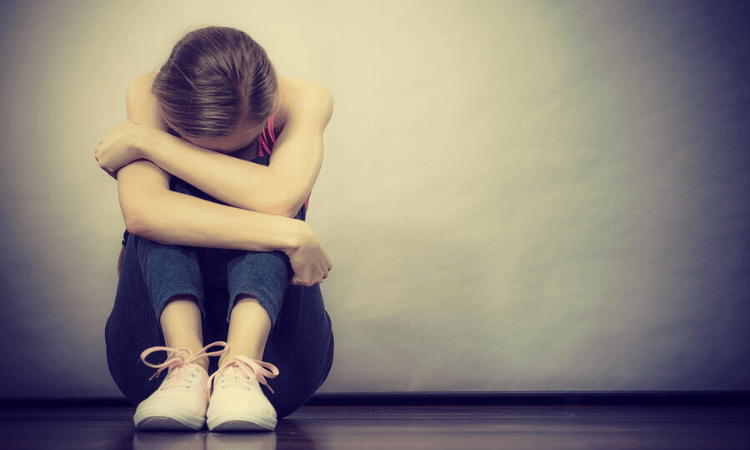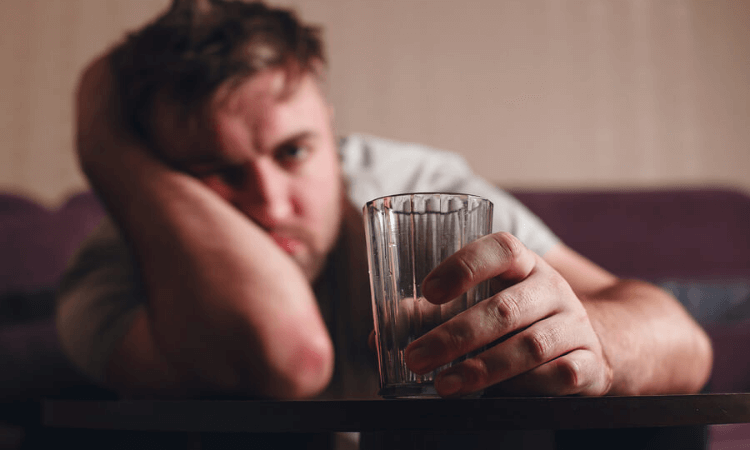
Alcohol and Depression: A Vicious Cycle – The abuse of alcohol and depression are closely correlated. Many people who experience depression, especially those who have not been properly diagnosed and treated, turn to alcohol in an attempt to feel better or numb the pain. In fact, at least 30%-40% of alcoholics also suffer from a depressive disorder.
Unfortunately, heavy alcohol consumption ends up having the opposite effect. Alcohol is a central nervous system (CNS) depressant that reduces activity in the brain and body. Studies have revealed that alcohol use increases both the duration and the intensity of depressive episodes. It also increases the likelihood of having suicidal thoughts.
Alcoholism can lead to the development of other stressors in life, such as financial, legal, and family problems that exacerbate depression. Moreover, if a depressed person then turns to alcohol in an effort to make themselves feel better, a vicious cycle has begun that can be extremely difficult to break.
Alcoholism can result in depression in many circumstances. Prolonged alcohol abuse can dramatically alter and rewire the brain, as well as affect other chemical balances in the body. This is especially true regarding the brain’s neurotransmitters—chemical messengers that regulate emotions and other important bodily functions. These widespread changes can ultimately lead to depression.
Alcohol Addiction
Prolonged, heavy alcohol consumption can lead to alcohol use disorder (AUD). Alcohol use disorder is hallmarked by problematic drinking and includes a broad spectrum of instances of alcohol abuse.
Some symptoms of alcohol use disorder include:
- Considerable time spent drinking
- Neglecting other activities to drink
- Having cravings for alcohol
- Repeatedly drinking too much or for too long
- Continuing to drink despite adverse effects on relationships
- Continued drinking despite emotional consequences, such as depression
Depression

Depression is a potentially serious mental health disorder that is characterized by persistent feelings of sadness, hopelessness, or worthlessness. It can infiltrate every aspect of an individual’s life and dramatically affect those around them. It often leads to problems with friends and family as well as difficulty in the workplace. Depression increases the risk of developing other health conditions and places the person at a higher risk for suicide.
Unfortunately, depression is a remarkably prevalent disorder. According to the American Psychiatric Association (APA), it affects about one in every 15 people.
The APA states that an individual can be diagnosed with depression if they present with some of the following symptoms for at least two weeks:
- Sadness
- Loss of interest in activities
- Erratic sleep patterns
- Insomnia
- Fatigue
- Feelings of worthlessness
- Concentration problems
- Suicidal thoughts
- Feelings of guilt
The development of depression is related to a multitude of different factors. Some people are genetically prone to depression. Personality can also play a role, as those with low self-esteem or who are more likely to be negative are also more likely to develop some level of depression.
In addition, environmental factors, especially those in childhood, play a fundamental role in the development of depression. While all of these factors can contribute to the likelihood that a person will experience depression, their presence does not guarantee he or she will get the disorder.
How Depression Leads to Alcohol Abuse
Some people drink alcohol in an attempt to cope with their depression. People can be attracted to the sedative and euphoric effects of alcohol as a kind of self-medication that distracts them from continual feelings of sadness. While alcohol may temporarily alleviate some symptoms of depression, it ultimately serves to exacerbate the condition when used on a chronic basis.
Alcoholism is associated with a myriad of adverse effects on nearly every aspect of life. As a person begins to encounter financial and legal consequences as a result of alcohol abuse and their relationships start to incur damage, depression can worsen. This fact often results in a disturbing cycle of alcohol abuse as a means to self-medicate symptoms of depression.
All the while, though, the depression is actually worsening with continuous use. Some people have overlapping genetic predispositions that make them more susceptible to both the abuse of alcohol and depression. What’s more, the onset of one disorder can trigger the other.
Those with depression who use antidepressants to manage the condition can experience additional adverse effects due to alcohol abuse. Alcohol consumption makes antidepressants less effective, and the depressant effects of the alcohol will further exacerbate the now inadequately managed depression.
How Alcohol Abuse Leads to Depression

While depression can place an individual at a higher risk of developing an alcohol problem, the inverse is equally common. According to the National Institute on Alcohol Abuse and Alcoholism (NIAAA), depression can manifest and increase while a person is suffering from alcoholism. As noted, this increase in depression can then result in more drinking, thus continuing this cycle from the other side.
According to one study, individuals dealing with either alcohol use disorder or depression double their risk of developing the other condition. Furthermore, the researchers concluded that this phenomenon is not merely a correlation. Indeed, alcohol use disorders and depression are bound up in a reciprocating causal relationship.
The study also found that alcohol abuse is more likely to cause major depression than the other way around, though the causality could go in either direction. There were links found between the neurophysiological and metabolic changes brought about by alcohol abuse and the mechanisms for depression to occur. Altogether, the findings demonstrated that abuse of alcohol puts an individual at a significantly higher risk to develop depression than that of a person who is not abusing the substance.
It is clear that alcohol abuse can cause depression, and depression can also contribute to alcohol abuse. This relationship can be cyclical, and a person can get caught up going back and forth between abusing alcohol and then using alcohol to try to relieve the resulting depression.
This can prove to be a challenging set of co-occurring conditions to address, and professional help is direly needed. If a person encounters feelings of depression as a result of alcohol abuse, it’s likely that these symptoms will subside some time after alcohol use has ceased.
Treatment for Alcohol Abuse and Depression
Alcoholism and depression can both be harrowing predicaments. For a person suffering from both conditions simultaneously, though, life can be especially troubling and often results in much poorer outcomes. Fortunately, due to the frequent co-occurrence of depression and alcohol abuse, many addiction treatment centers, such as Recovery in Tune, are clinically prepared to treat both disorders concurrently.
Integrated treatment is the most effective way to achieve recovery from both disorders. If only one condition is treated without addressing the other, relapse is highly likely.
Cognitive-behavioral therapy and counseling are two of the most effective ways to combat both alcoholism and depression. We offer these services in intensive-outpatient and outpatient formats and may include medication-assisted therapy to aid in recovery from both conditions. Our highly-trained staff of addiction specialists is dedicated to providing every client with the knowledge and support they need to fully recover and foster the healthy and satisfying lives they deserve.
If you or someone you love is suffering from alcohol abuse and depression, contact us today. Discover how we help people escape the clutches of addiction and enjoy long-lasting wellness and sobriety!